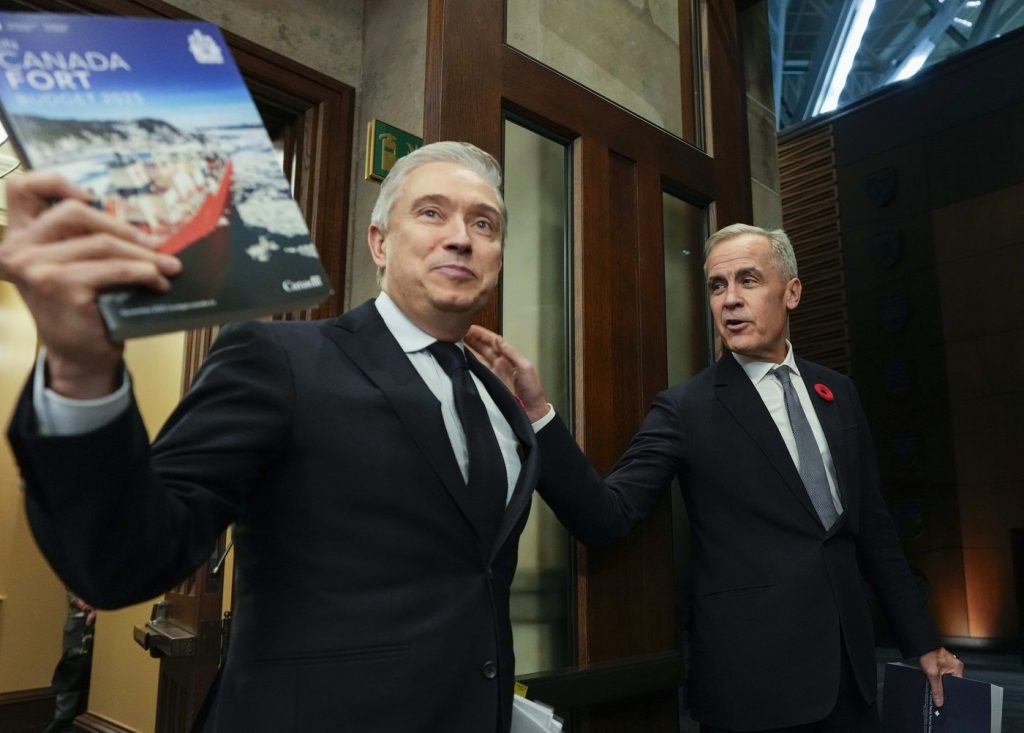Prime Minister Mark Carney is standing firm behind his first federal budget, calling it a “bold response” to a turbulent global economy and vowing that it will spark $1 trillion in new investment over the next five years — despite growing criticism from economists and provincial leaders who say the plan lacks true ambition.
Speaking at a transit yard in Ottawa on Wednesday, Carney said the 2025 budget was designed to confront economic headwinds triggered by U.S. President Donald Trump’s global tariff campaign, which is expected to leave Canada’s economy 1.8 per cent smaller by 2027 than earlier forecasts predicted.
“Now is not the time to be cautious,” Carney told reporters. “Fortune favours the bold. It’s time to get big things done for Canadians — and get them done fast.”
The government’s plan includes nearly $90 billion in new spending over five years and introduces a 10-year, $51 billion local infrastructure fund targeting bridges, hospitals, transit systems, and roads. However, critics say much of that funding is reshuffled from existing programs rather than truly new investments. TD Economics noted that only $9 billion of the infrastructure funding over the next five years is fresh money, while economist Trevor Tombe estimated that just $8.3 billion of the overall increase is new — roughly 0.2 per cent of GDP, far from the “generational” change the government has promoted.
Ontario Finance Minister Peter Bethlenfalvy dismissed the budget as “less transformational” and “more tinkering,” citing a lack of support for provincial infrastructure and insufficient relief for the auto sector.
Carney, joined by newly Liberal MP Chris d’Entremont, who crossed the floor from the Conservatives this week, defended the plan as a “sea change” in how Ottawa spends. He highlighted a sharp reduction in operational spending growth — from 8 per cent annually to less than 1 per cent — while boosting capital investments.
A key measure, dubbed the “productivity super-deduction,” allows businesses to immediately write off capital spending in the first year, bringing Canada closer in line with the U.S. on tax competitiveness. Analysts say this could help attract investment, though its temporary nature limits long-term impact.
At the House of Commons finance committee, Bank of Canada Governor Tiff Macklem praised the budget’s focus on productivity and private investment but cautioned that success will depend on “the quality of spending and execution.”
As Carney begins his cross-country campaign to sell the budget, the government faces a confidence vote that could make or break both the plan — and potentially, the minority government itself.

